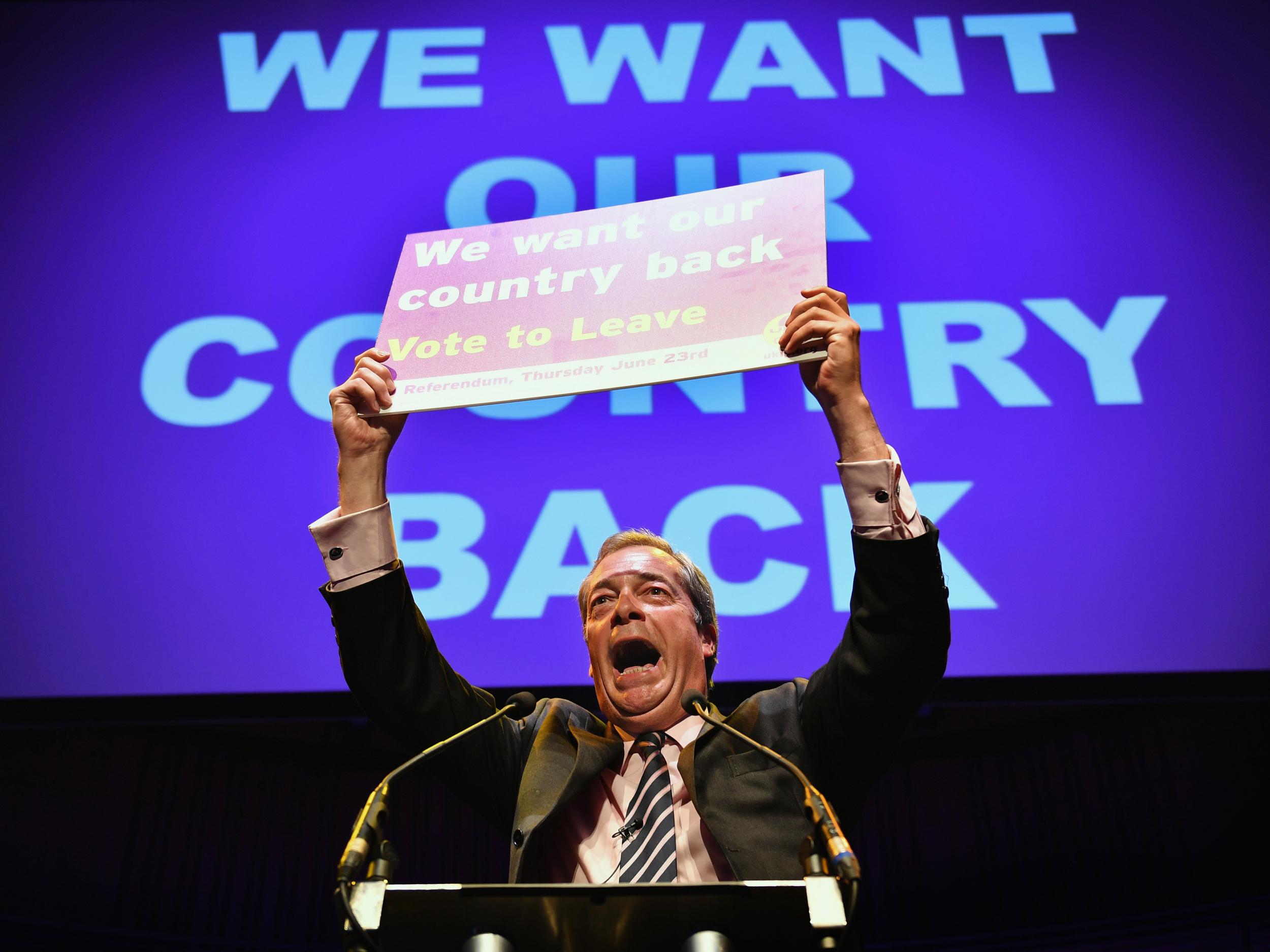Politicians have 'legitimised hate' after Brexit vote and must avoid polarising language, watchdog warns
Advisory body writes to MPs saying hate crimes are a stain on society and the promise to 'heal' society following the EU referendum must not be forgotten

Your support helps us to tell the story
From reproductive rights to climate change to Big Tech, The Independent is on the ground when the story is developing. Whether it's investigating the financials of Elon Musk's pro-Trump PAC or producing our latest documentary, 'The A Word', which shines a light on the American women fighting for reproductive rights, we know how important it is to parse out the facts from the messaging.
At such a critical moment in US history, we need reporters on the ground. Your donation allows us to keep sending journalists to speak to both sides of the story.
The Independent is trusted by Americans across the entire political spectrum. And unlike many other quality news outlets, we choose not to lock Americans out of our reporting and analysis with paywalls. We believe quality journalism should be available to everyone, paid for by those who can afford it.
Your support makes all the difference.Senior politicians must do more to tackle hate crime and must moderate their “polarising” language and policies, the equalities watchdog has said.
In a letter to all party leaders, the Equality and Human Rights Commission (EHRC) said the Brexit campaign had “legitimised hate” and expressed serious concern that “divisions on a range of big questions are widening and exacerbating tensions in our society”.
They criticised the aggressive political rhetoric employed by many MPs, cautioning: “Politicians of all sides should be aware of the effect on national mood of their words and policies, even when they are not enacted."
The letter, which is co-signed by the commission's chairman David Isaac and its chief executive Rebecca Hilsenrath, reminded ministers: “Your offices bring with them a responsibility to ensure that policy debate is conducted in a way that brings the country together and moves it forward.”
It called for “accurate information and respectful debate” from politicians, and suggested speeches made following the EU referendum, on “the need to heal the country and bring people together", had not been adequately followed through on.
"The murder of Arkadiusz Jozwick, racist, anti-semitic and homophobic attacks on the streets, and reports of hijabs being pulled off are all stains on our society," the EHRC said.
The letter was sent just days after Thomas Mair was jailed for life for the murder of pro-remain Labour Party MP Jo Cox during the referendum campaign.
Prosecutors said the attack on Ms Cox was “nothing less than acts of terrorism”, and the judge said it was carried out to advance a political cause of violent white supremacism.
“We welcome the UK government’s hate crime action plan," the letter said, "but believe more concerted action is needed to counter the narrative from a small minority".
The UK government should carry out a full-scale review of sentencing for hate crimes in England and Wales, the authors said, and should consider increasing sentences for crimes motivated by hate. Prime Minister Theresa May also needs to provide stronger evidence to prove her hate crime strategies are working.
If politicians are unsure of how to proceed, the commision heads offered to meet them in person, individually or collectively, "to discuss how we can work closely with you in the months ahead and help to shape your agenda and policies to make Britain the vibrant and inclusive country we believe it should be".
The EHRC, which is an independent statutory body with a remit to advise the government on equality and human rights law, added: “We are concerned that attacks on supporters of both sides of the Brexit debate have polarised many parts of the country.
”There are those who used, and continue to use, public concern about immigration policy and the economy to legitimise hate.
“The vast majority of people who voted to leave the European Union did so because they believe it is best for Britain and not because they are intolerant of others.”
It described the Brexit vote as a “defining moment” for the country, but argued that the focus now needed to shift from the economic implications of the referendum result to a “discussion on what values we hold as a country”.
The letter included specific examples of behaviour by the country's leaders that the EHRC considered dangerous and unacceptable. The Government's aborted plan to "name and shame" companies who employ many foreign workers for instance, and discussion on the rights of child migrants, during which "the dialogue escalated to irrational levels".
The organisation also said there had been an “ambivalent reception” to claims of anti-Semitism in mainstream political parties. "A clear affirmation that such behaviour is unacceptable is necessary to confirm that standards will improve," the letter said.
Home Office figures released in October showed racist or religious abuse incidents recorded by police in England and Wales increased by 41 per cent in the month after the UK voted to leave the EU.
The Home Office said there was “absolutely no excuse” for such offences and pledged extra money had been allocated to tackle the issue.
Join our commenting forum
Join thought-provoking conversations, follow other Independent readers and see their replies
Comments